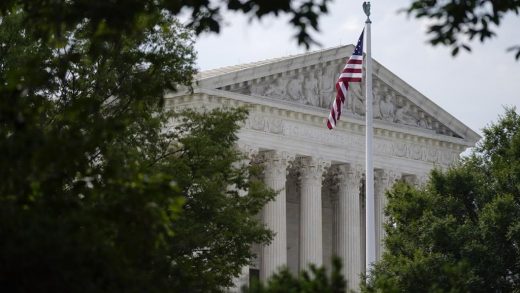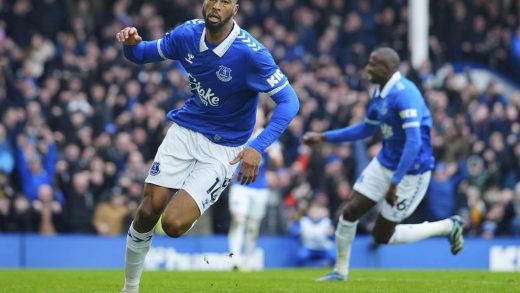Stakes highest in Manchester Derby/FA Cup final

It would be unrecognizable.
In the autumn of 1891, a few weeks after the very first penalty in English football was awarded, Ardwick AFC hosted nearby opponents Newton Heath in the opening round of the FA Cup.
The players, several of whom would’ve earned around three pounds per week, kitted up in a nearby pub before taking the field at a ground that had recently been a nuisance dump. On one side, the XI sported navy and white; on the other, green and gold.
Dave Thompson / The Associated Press files
Manchester United’s Casemiro kicks the ball as Manchester City’s Bernardo Silva defends during January’s Manchester Derby won 2-1 by United.
Naturally, the details — at least by today’s standards — don’t take us much further than that. We can guess at a crowd of 11,000 or so, and we do know the goalscorers: one from the hosts and four from the guests, Alfred Farman netting twice.
Given the importance of the FA Cup as a lasting, national competition at a time when divisions and leagues teetered and tripped like a curious toddler, this would necessarily have been an anticipated, celebrated match.
Under no circumstances could a supporter at Hyde Road that day have foreseen what the rivalry would become, even though they were witnessing the first instalment of what we now call the Manchester Derby.
As of this week Wednesday, 132 years after that initial meeting and in the buildup to their 190th confrontation, the two clubs – now decked in sky blue and red – have been valued at a combined £8.8 billion by Forbes. City midfielder Kevin De Bruyne makes £400,000 per week; United goalkeeper David De Gea is on £375,000. Altogether, they pay their players almost £400,000,000 per season, about £50,000,000 more than the top pair in Major League Baseball (also in a single city: New York).
A far cry from those first 11,000 supporters – still a mighty impressive number in its context – today’s FA Cup Final version of the Manchester Derby (9 a.m., Sportsnet) will be played at Wembley in front of 90,000 fans, with an estimated 20 million more tuning in from around the world. Unrecognizable, indeed.
Then there’s the actual football, historic by any standard.
Having already won the Premier League and booked their place in next weekend’s Champions League Final, Manchester City are on course to replicate United’s treble-winning season of 1998-99.
Beating the Red Devils to claim the second of the three trophies would not only make the triumph all the sweeter, but also secure the Citizens’ presence among the very best teams in English football history — if not the best, period. Which is why today’s showdown will be of much more consequence than typical FA Cup Finals.
Until iconic United manager Sir Alex Ferguson’s retirement a decade ago, it was the Old Trafford outfit that dominated the country’s football for more than 20 years. To paraphrase the Scot, they’d knocked Liverpool off their perch to do it, and the Premier League-FA Cup-Champions League trifecta they completed in Barcelona showed England’s greatest team at the peak of their extraordinary power.
Four days later, City needed penalties in a play-off to get promoted out of the old Second Division. United were the top team in the land; their neighbours were the 47th.
It’s not as though they’ve swapped positions in the almost quarter-century since, although City did supplant United some time ago. This FA Cup Final won’t change that. But six titles will, and there may be more to come before United finally win their first post-Ferguson. They’ve lifted only four trophies in the last 10 years to City’s 13. It’s the sort of lopsided scoreline that alters a power dynamic.
Money, which seems to be a theme here, certainly helped reverse it. The unprecedented investment by City owner Sheikh Mansour and his Abu Dhabi group was always going to be a game-changer. It might’ve even violated more than 100 financial regulations. Should the club be found guilty on even a handful of counts, that 13 could quickly dissolve into zero.
For now, however, none of that matters. And United, for all their recent struggles, have nevertheless consistently outspent City in wages and transfer fees. Rarely has football, or any sport, seen such wasteful outlay. At least, until recently.
Last summer’s appointment of manager Erik ten Hag seemed, if not to restore United’s sense of themselves, than to at least begin the restorative process. They won the League Cup in February and last week booked passage to the group stage of the Champions League. They also beat City 2-1 in January.
If today’s Wembley battle is Manchester City’s chance to decisively depose England’s lone treble-winner to date, then it’s also an opportunity for Manchester United to both deny them that victory and even halt the ascension.
Stakes don’t get much bigger than that.
Ninety minutes of football at Wembley, in the most anticipated, most expensive, most consequential FA Cup Final ever played, could determine nothing less than the greatest English dynasty in the history of the game.
To those 19th century supporters in attendance for the maiden running of this derby, it would be unrecognizable.
Twitter @JerradPeters


